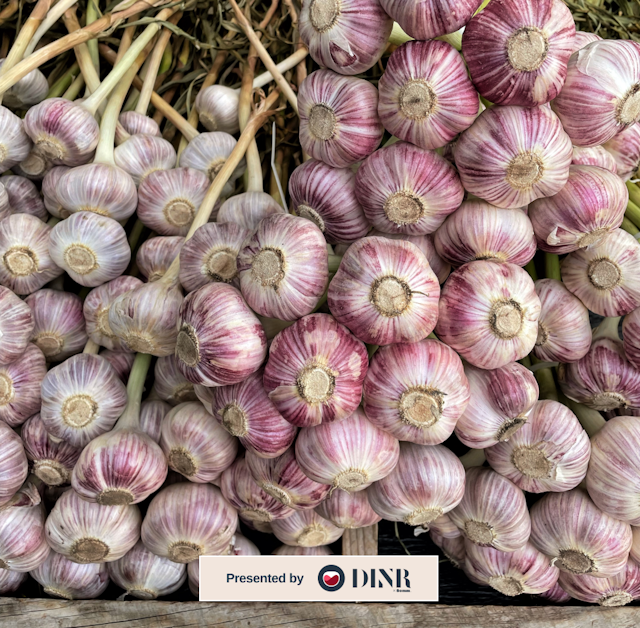Reimagining the Future of Montreal's Chinatown
As Chinatowns across North America continue to face challenges related to expropriation, gentrification, crime and aging populations, a local organization has come together to present a forum for open discussion and discovery.
 Place Sun-Yat-Sen in Montreal's Chinatown. (Photo credit: Rachel Cheng)
Place Sun-Yat-Sen in Montreal's Chinatown. (Photo credit: Rachel Cheng)It’s Saturday morning at Chinatown House, and sun is filtering through the windows as a growing buzz of people arrive to chat, share egg tarts, or work on a community project.
While the building at the corner of Clark and de la Gauchetière is quiet now, in a few days the entire second floor will be full of art exhibits and people as part of the Chinatown Reimagined Forum II.


Taking place this September 28-30, the Forum is organized by the JIA Foundation, a Montreal-based nonprofit dedicated to providing meaningful ways for people to connect with Chinatown. The free event is an opportunity to learn about the history of the area, celebrate heritage and resilience, and work towards thriving, sustainable Chinatowns across North America.
“Chinatowns across North America are facing similar issues: there’s real estate speculation, there’s gentrification, lack of unified city planning, and intergenerational disconnects,” explains Parker Mah, one of the co-founders of JIA.

With this in mind, the forum is bringing everyone together, including those who love the food and culture of Chinatown, organizers interested in community wellbeing, urban planners, policymakers at the Hotel de Ville, and others from across Montreal – and the continent.
To share tools to build a thriving neighbourhood and talk about cultural and economic revitalization, the Forum will offer online panel discussions in English, French, and Cantonese.
The program then invites participants to join them in the streets, with a walking tour on social justice in Chinatown, a film screening and discussion of the documentary Big Fight in Little Chinatown, and pop-up art exhibits at Chinatown House.
Among the pop-up exhibits is a collaboration with the organization Things + Time. Participants will have the chance to 3D scan artifacts using an app, adding it to an online archive. The idea is to move the power from the hands of museums to the hands of people to decide what is memorialized and is of cultural importance.
The Forum ends with a block party at Parc Sun-Yat-Sen, featuring music from Transpacific Express and Rhythm and Hues, a chance to learn and play mahjong hosted by MyChinatownMTL, drag performances from Komodo & Friends, and poetry from Chris Tse.
The Forum coincides with the Mid-Autumn Festival, a time when East and Southeast Asian communities gather with their families to eat, give thanks, and wish for good fortune under the full moon, whose round shape signifies reunion. This creates an opportunity to bring people together in a neighbourhood that has traditionally been a place of refuge for many immigrant communities.
“How do we stay close to the central idea of Chinatown as a place of sanctuary, for people to call home and find a sense of belonging – that’s going to be critical in discussions,” explains Jessica Chen, another co-founder of the JIA Foundation.

The timing is also right to commemorate 100 years since the Chinese Exclusion Act, passed in 1923 by the federal government to bar almost all Chinese immigration. Chinese communities were already experiencing systemic discrimination in Canada, and this Act had profoundly devastating effects, separating families for decades.
After the Act was passed, all Chinese people in Canada, including those born here, had to register and carry a CI Certificate, a photo identification specifically for Chinese people that was a constant reminder of their second-class status.
“We felt it was important for the Forum to be held in 2023. We wanted to do it this year, reflecting on how Chinatown was born out of racist policies, and moving forward, for Chinatown to continue being a sanctuary for those experiencing marginalization,” Chen explains.
“We want to make clear that the issues are not just specific to us—the issues of land expropriation in the name of urban renewal—that’s happening in many communities.” – Parker Mah
Indeed, before Montreal was written onto the map of Lower Canada, the island was known as Mooniyang to the Anishinaabe and Tiohti:áke for the Kanien’keha:ka (Mohawk). With this in mind, the Forum will start with an opening ceremony and a sharing circle, where three Indigenous leaders and two elders from the Chinese community will be in conversation around land, belonging, and solidarity between Indigenous and Chinese communities.
Recognizing that the Forum also takes place during Truth and Reconciliation Week in Canada, the intention is that the discussions in the following days will be grounded in recognition of being on unceded territory.

In Mandarin, jia (家) is a word that refers both to family and home. More than a physical space, it is something that offers refuge and belonging. “We are called the JIA Foundation because we want people to figure out what that sense of belonging means,” says Jessica.
What does Montreal’s Chinatown symbolize then, and what can it become beyond transactional exchanges between customers and bubble tea shops? How will Chinatown look like if more of us considered it a part of our home, particularly now that it has been granted official heritage status in Quebec?
Between the music, film, art, and dialogs happening at the Forum, the hope is that a reimagined Chinatown will start to crystallize.


More information on the Chinatown Reimagined Forum can be found here.
![The Bulletin: The End of Summer? Say It Ain't So [Issue #43]](/_next/image?url=https%3A%2F%2Fthemain.ghost.io%2Fcontent%2Fimages%2F2023%2F09%2F50682-Credit-FR---%40jfsavaria---Tourisme-Montr-al-EN-Credit---%40jfsavaria---Tourisme-Montr-al.jpg&w=640&q=75)






